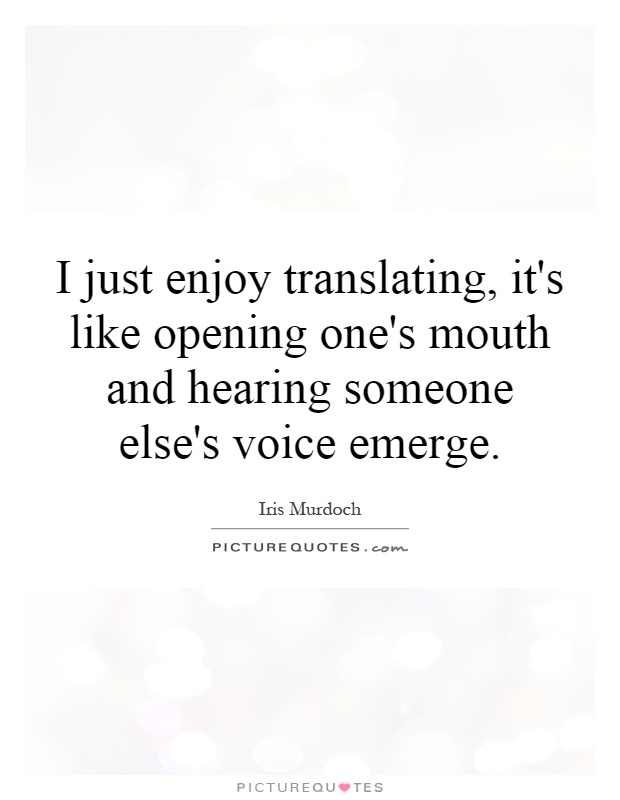I just enjoy translating, it's like opening one's mouth and hearing someone else's voice emerge

I just enjoy translating, it's like opening one's mouth and hearing someone else's voice emerge
Iris Murdoch, the renowned British author and philosopher, once famously said, “I just enjoy translating, it's like opening one's mouth and hearing someone else's voice emerge.” This quote encapsulates Murdoch's deep appreciation for the art of translation and the transformative power it holds. For Murdoch, translating was not just a mechanical task of converting words from one language to another, but a profound act of empathy and understanding.Murdoch's own work as a novelist and philosopher was deeply rooted in the exploration of human consciousness and the complexities of interpersonal relationships. She believed that language was a powerful tool for expressing the inner workings of the mind and the depths of human emotion. In her view, translation was a way to bridge the gap between different cultures and perspectives, allowing for a deeper understanding of the human experience.
For Murdoch, the act of translation was akin to a form of communication that transcended linguistic barriers. By translating a text, one was not only conveying the literal meaning of the words, but also capturing the essence and spirit of the original work. In this sense, translation was a way of giving voice to the thoughts and feelings of another person, allowing their unique perspective to be heard and understood.
Murdoch's own experiences as a writer and thinker undoubtedly informed her views on translation. As someone who grappled with the complexities of language and meaning in her own work, she understood the challenges and rewards of translating a text. She saw translation as a creative act that required sensitivity, intuition, and a deep appreciation for the nuances of language.
In Murdoch's eyes, translating was not just a technical skill, but a form of artistry that required a deep connection to the text and its author. By opening one's mouth and allowing someone else's voice to emerge, the translator was engaging in a profound act of empathy and understanding. Through translation, one could enter into the world of another person, experiencing their thoughts, emotions, and experiences in a way that was both intimate and transformative.












 Friendship Quotes
Friendship Quotes Love Quotes
Love Quotes Life Quotes
Life Quotes Funny Quotes
Funny Quotes Motivational Quotes
Motivational Quotes Inspirational Quotes
Inspirational Quotes